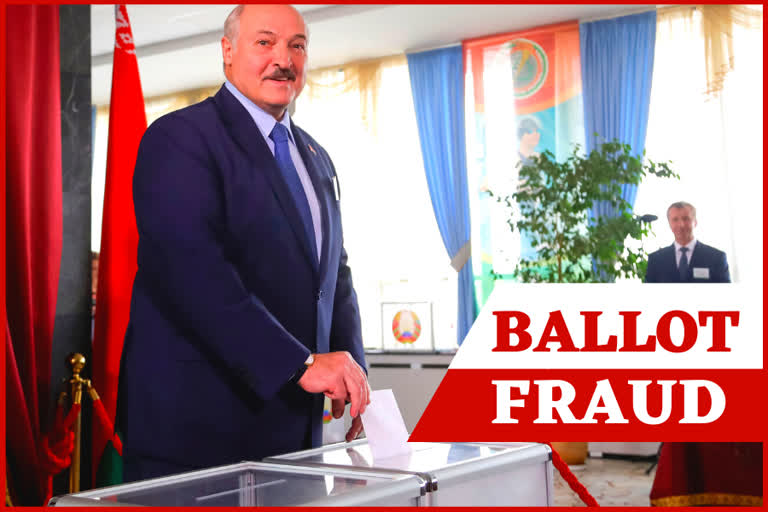Minsk: Even before the August 9 presidential election in Belarus ended, a poll worker in Minsk said she was asked to sign a document summing up its result, with the vote totals left blank.
Another worker who pointed out violations during the vote-counting was fired on the spot.
In the three weeks since the election that kept Lukashenko in power with a landslide win, hundreds of thousands of people have protested what they say was a rigged outcome. Demonstrations and strikes in the country have been met by a police crackdown including mass detentions, beatings and criminal charges against organizers.
The Associated Press interviewed election workers who said they saw ballot fraud or were pressured to falsify results in favor of Lukashenko. In addition, other evidence has been posted online showing falsifications and other irregularities.
Read also:Thousands form 'chains of solidarity' in Minsk
To many in Belarus, where Lukashenko has ruled with an iron fist since 1994 and has been accused of rigging previous elections, his victory last month seemed clearly implausible.
His main opponent, former English teacher Sviatlana Tsikhanouskaya, drew crowds of tens of thousands of people after she entered the race in place of her husband, Sergei, a popular opposition blogger who was jailed before the election. She had managed to unite fractured opposition groups, channeling the growing frustration over the country's weak economy and Lukashenko's swaggering dismissal of the coronavirus pandemic.
Read also:Belarus challenger urges EU to support 'awakening' country
When the results were announced, however, the Central Election Commission said Lukashenko won 4.6 million votes, or 80%, and Tsikhanouskaya got only 5,88,000, or 10%.
The opposition was prepared for such an outcome — allegations of rigged elections have surfaced in every vote in Belarus since Lukashenko took power in 1994. This time, it trained people to be independent monitors at polling stations, it encouraged poll workers to report violations, and it set up a website where voters could submit photos of their marked ballots to compare with the official count.
Activists monitoring the election said in a report that they received complaints about violations, irregularities and incidents of some form of vote-rigging from at least 24% of the country's 5,767 precincts.
The report said that they studied just under one-fourth of the nation's precincts and found that Tsikhanouskaya received over 471,000 votes in those areas alone.
Valeria Artikhovskaya, who worked at a polling station in Minsk, said she still doesn't know the official results of the vote at her precinct because they were never released.
Artikhovskaya said she was asked to sign the final protocol — a document summing up the vote totals each precinct must display after counting the ballots — before voting even ended, with the totals left blank.
Artikhovskaya refused, and once the count started, she noticed other poll workers putting ballots for different candidates into a stack for Lukashenko.
"I said I wouldn't sign the protocol because it's a crime, it's fraud. (I said,) 'Allow me to recount these ballots,' and they refused. I didn't sign the protocol and left the precinct," the 30-year-old told the AP on Friday. "My conscience is dearer to me."
Vadim Korzykov, who worked at another Minsk polling station, told AP he didn't even get to the signing stage -- a senior poll worker dismissed him after he pointed out violations during the count.
The 20-year-old student said his colleagues told him later that the number of votes for Tsikhanouskaya at the precinct was five times higher than what Lukashenko received there.
"It was a travesty of justice. There is no other name I can call it," Korzykov said in a phone interview on Wednesday.
Andrei Gnidenko, who worked at a poll in Vitebsk, a small city in northeastern Belarus, said he gave in to the pressure and signed a document with falsified results.
